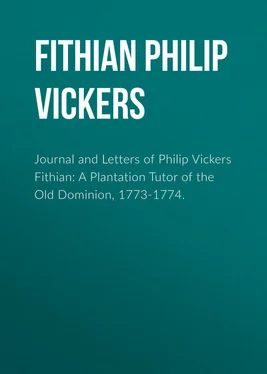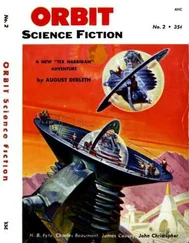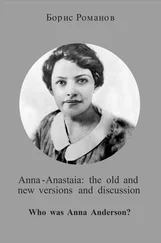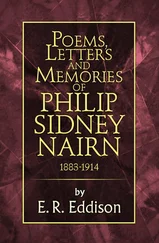Philip Fithian - Journal and Letters of Philip Vickers Fithian - A Plantation Tutor of the Old Dominion, 1773-1774.
Здесь есть возможность читать онлайн «Philip Fithian - Journal and Letters of Philip Vickers Fithian - A Plantation Tutor of the Old Dominion, 1773-1774.» — ознакомительный отрывок электронной книги совершенно бесплатно, а после прочтения отрывка купить полную версию. В некоторых случаях можно слушать аудио, скачать через торрент в формате fb2 и присутствует краткое содержание. Жанр: foreign_antique, foreign_prose, на английском языке. Описание произведения, (предисловие) а так же отзывы посетителей доступны на портале библиотеки ЛибКат.
- Название:Journal and Letters of Philip Vickers Fithian: A Plantation Tutor of the Old Dominion, 1773-1774.
- Автор:
- Жанр:
- Год:неизвестен
- ISBN:нет данных
- Рейтинг книги:3 / 5. Голосов: 1
-
Избранное:Добавить в избранное
- Отзывы:
-
Ваша оценка:
- 60
- 1
- 2
- 3
- 4
- 5
Journal and Letters of Philip Vickers Fithian: A Plantation Tutor of the Old Dominion, 1773-1774.: краткое содержание, описание и аннотация
Предлагаем к чтению аннотацию, описание, краткое содержание или предисловие (зависит от того, что написал сам автор книги «Journal and Letters of Philip Vickers Fithian: A Plantation Tutor of the Old Dominion, 1773-1774.»). Если вы не нашли необходимую информацию о книге — напишите в комментариях, мы постараемся отыскать её.
Journal and Letters of Philip Vickers Fithian: A Plantation Tutor of the Old Dominion, 1773-1774. — читать онлайн ознакомительный отрывок
Ниже представлен текст книги, разбитый по страницам. Система сохранения места последней прочитанной страницы, позволяет с удобством читать онлайн бесплатно книгу «Journal and Letters of Philip Vickers Fithian: A Plantation Tutor of the Old Dominion, 1773-1774.», без необходимости каждый раз заново искать на чём Вы остановились. Поставьте закладку, и сможете в любой момент перейти на страницу, на которой закончили чтение.
Интервал:
Закладка:
The social life of the family at "Nomini Hall" was of the most agreeable sort. Situated on a hill overlooking the Potomac and Nomini rivers, the mansion was admirably suited to the hospitable tradition of the region. A large rectangular structure of brick, covered with stucco, the great house was surrounded by more than thirty dependent structures or offices and presented an attractive and imposing appearance. The four principal offices were set off at a distance of one hundred yards from the corners of the house, and within the rectangle formed by these buildings was a long bowling green. Extensive and well-tended gardens provided agreeable promenades for members of the family and guests. One approached the mansion from the public highway through a wide avenue of poplars which terminated in a circle about the house. Viewed through this avenue from a distance, Fithian asserted, "Nomini Hall" appeared "most romantic, at the same time it does truly elegant."
The lower floor of the great house contained the master's library, a dining room, used also as a sitting room, a dining hall for the children, a ballroom thirty feet long, and a hallway with a fine stairway of black walnut. The upper rooms were used as sleeping quarters for members of the family and for guests. The older boys and their tutor slept above-stairs in one of the large offices that was also used as a schoolhouse. During the time Fithian was there Carter arranged to convert one of the lower rooms of this office into a concert or music room. Here he proposed to place the harpsichord, harmonica, forte-piano, guitar, violin, and German flutes which were in the great house, and to bring up for that purpose from his Williamburg residence, the organ which had been built for him in London according to his own specifications.
Seven of the nine surviving Carter children [24] Footnote_24_24 Four of the seventeen Carter children were born after Fithian had left the family.
and the Councillor's nephew, Harry Willis, were placed under Fithian's care. Benjamin, the eldest son, was a quiet, studious boy of eighteen. Robert Bladen, two years younger, loved the out-of-doors and cared little for learning. John Tasker, only four, was too young for instruction. Priscilla, the eldest daughter, was an attractive girl of fifteen. Anne Tasker, called Nancy, and Frances or Fanny, whom Fithian thought the "Flower of the Family," were thirteen and eleven respectively. Betty Landon was ten, and Harriot Lucy, a "bold, fearless, merry girl," was seven. Sarah Fairfax, the baby, was only a few months old at the time Fithian arrived.
Apart from the members of the family, the tutor, and the numerous domestics, various other persons maintained a more or less permanent connection with the household. Among these were Miss Sally Stanhope, the housekeeper, Mr. Randolph, who served as clerk and steward for Carter, Mr. Christian, a peripatetic dancing master who visited most of the great manor houses of the Northern Neck, Mr. Stadley, music master to the children, and Mrs. Oakley, who had nursed several of them at Williamsburg.
In no section of the colony were the great planters more numerous than in the Northern Neck; in none did they dominate society more completely. The families on the manor plantations associated on terms of intimacy. Gay assemblies, dances, balls, and banquets brought them together frequently. Dancing masters held their classes in rotation at the great plantation houses. At these homes their pupils assembled in turn, frequently accompanied by parents and friends. After the master had instructed the young men and women on these occasions, an informal dance was generally held. These families customarily congregated about the parish church before and after services to enjoy social exchanges. Attendance at county court provided another regular opportunity for commingling. Boat races, barbecues, "Fish-feasts," and horse races brought friends together at intervals. Sometimes elaborate private entertainments were given at which music, feasting, and dancing continued for several days. Rarely a day passed but found some guest at the Councillor's table. Members of the Carter household constantly exchanged visits with the plantation families of their neighborhood and with relatives and friends in adjoining counties. They dined frequently with the Turbervilles at "Hickory Hill," the Washingtons at "Bushfield," the Lees at "Chantilly" and "Stratford," and with the more distant Tayloes at "Mount Airy."
With all these persons the young Princeton tutor was familiar. He accompanied the Carters frequently when they dined at their friends' tables, he attended banquets and balls with them, conversed with the people of the vicinity at the parish churches, met them at races, and observed their conduct as guests at "Nomini Hall." The sprightly interest with which Fithian comments upon these men and women and their way of life makes them seem as real today as then.
For more than a century the manuscript of Fithian's journal and the letters he wrote home remained unpublished. During that time, some years apparently after Philip's death, his brother, Enoch, assembled the letters and papers and the various sections of the journal kept over a period of years and copied them in several bound volumes from the loose and various-sized sheets upon which they were written. It is from this transcript that the journal is known today, and the irregularities in punctuation, spelling, and capitalization in the form in which it has been preserved are doubtless due largely to this fact.
The journal kept at "Nomini Hall" and a group of letters written by Fithian during his residence there were finally published in 1900 by the Princeton University Library, into whose custody had come seven manuscript volumes of Fithian's papers in Enoch Fithian's hand. This publication was edited by John Rogers Williams, a member of the Princeton Historical Association. [25] Footnote_25_25 Some extracts from the Journal were published in the American Historical Review of January, 1900.
A small part of the journal and certain letters which the editor regarded as "of too intimate and personal or too trivial a character" were omitted, his object being "in general to present such as have some bearing on historic places and personages, together with representative ones showing" Fithian's "character and circumstances." [26] Footnote_26_26 Cf. Philip Fithian's Journal , edited by John Rogers Williams, p. xiv.
The editor, moreover, was interested in Fithian's manuscripts primarily from the standpoint of the tutor's association with Princeton.
In the present edition the manuscripts have been treated with special reference to the light they throw on life in the Old Dominion. The journal kept at "Nomini Hall" and all the letters written by Fithian from Virginia are given in their entirety. Several letters written after his departure from "Nomini Hall," but which relate to matters and persons in Virginia, are now printed for the first time.
The journal and letters of Philip Fithian are so revealing of his personality that one inevitably becomes attached to the young tutor, and the reader today may well be curious to know his subsequent career. Having prepared himself for the Presbyterian ministry, Fithian left the Carter household late in 1774 despite the strong ties of friendship and gratitude which now bound him to the family. His decision to return to New Jersey was influenced both by a sense of duty and his growing attachment for Elizabeth Beatty, the "fair Laura" of his journal. In December, 1774, he was licensed to preach by the Presbytery of Philadelphia. That winter he filled vacancies in West Jersey and the following summer served as a Presbyterian missionary in the Valley of Virginia and Pennsylvania. He married Elizabeth Beatty in October, 1775. Early in 1776 he enlisted as a chaplain in the Revolutionary forces. Shortly after the battle of White Plains he died as the result of an attack of dysentery and exposure in camp. Though his promise to visit the family at "Nomini Hall" again was never fulfilled, the letters he wrote to members of the Carter household after his departure reveal the tender regard in which all were held.
Читать дальшеИнтервал:
Закладка:
Похожие книги на «Journal and Letters of Philip Vickers Fithian: A Plantation Tutor of the Old Dominion, 1773-1774.»
Представляем Вашему вниманию похожие книги на «Journal and Letters of Philip Vickers Fithian: A Plantation Tutor of the Old Dominion, 1773-1774.» списком для выбора. Мы отобрали схожую по названию и смыслу литературу в надежде предоставить читателям больше вариантов отыскать новые, интересные, ещё непрочитанные произведения.
Обсуждение, отзывы о книге «Journal and Letters of Philip Vickers Fithian: A Plantation Tutor of the Old Dominion, 1773-1774.» и просто собственные мнения читателей. Оставьте ваши комментарии, напишите, что Вы думаете о произведении, его смысле или главных героях. Укажите что конкретно понравилось, а что нет, и почему Вы так считаете.












